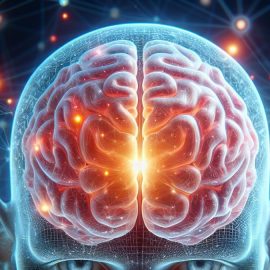

This article is an excerpt from the Shortform book guide to "Keep Sharp" by Sanjay Gupta. Shortform has the world's best summaries and analyses of books you should be reading.
Like this article? Sign up for a free trial here .
What happens in your brain when you sleep? Conversely, what happens in your brain when you don’t sleep?
Chronic inadequate sleep leads to a higher risk of many health issues, including dementia and cognitive decline. Extensive research on the effects of sleep shows that sleep is more than just the body’s chance to relax: It’s a vital phase of neural activity and regeneration.
Here’s a look at sleep and the brain.
Our Brains During Sleep
Gupta claims that our brains perform billions of molecular tasks while we sleep. Because of this, sleep keeps us sharp, creative, and able to process information. Sleep keeps our brains healthy in three key ways, says Gupta:
1. Sleep controls our hormonal cycles: Our circadian rhythms revolve around our sleeping habits, and these rhythms dictate our hormonal patterns. These hormonal patterns help regulate our appetites, stress levels, and cellular recovery. People who don’t get enough sleep on a regular basis are likely to have issues with their metabolism and stress levels—and thus, their brain’s function.
(Shortform note: Sleep also appears to reduce stress by mitigating the stress from our daily lives. Research indicates that during REM sleep, our stress neurochemicals weaken while the brain processes emotional experiences. This suggests that this dream stage of sleep acts as a sort of therapy, potentially taking the edges off difficult experiences of the day. This insight may also explain why people with post-traumatic stress disorder (PTSD) have a difficult time with flashbacks: They often have disrupted sleep patterns, so they aren’t effectively removing the emotional impact of their memories during sleep.)
2. Sleep helps us encode memories and process information: A recent theory suggests that our brains consolidate our memories during sleep. Essentially, while we sleep, our brains move information from our short-term to our long-term memory. Furthermore, when we don’t sleep enough, our brains lose the ability to process information at all. In other words, not only do we struggle to remember things later on, but we also struggle to even take in the information in the first place.
(Shortform note: In Why We Sleep, Matthew Walker explains that during sleep, our brains move information from the hippocampus to the cortex. This not only transfers memories from the short to the long term but also clears out short-term memories that are deemed unnecessary. In other words, sleep helps you remember things and make room for new information.)
3. Sleep helps our brain’s cleansing process: Recent studies show that our brains remove excess waste through something called the glymphatic system. When we sleep, this system greatly increases its output. Sleep helps get rid of the waste from our metabolic system, which includes the amyloid plaques that have been linked to dementia.
(Shortform note: The glymphatic system was first discovered in 2012, and some researchers suggest the biological need for sleep across most of the animal world may be because of our need to remove neurotoxic waste. Also, recent research has linked sleep position to changes in the glymphatic system. Patients with dementia were found to spend a much longer time sleeping in the supine position (face up). For most efficient glymphatic transport, sleeping on your side is recommended.)
Tips for Better Sleep
In discussing sleep and the brain, Gupta provides some easy-to-follow advice on getting more consistent and better quality rest:
Stay on schedule: Irregular sleep patterns are harmful to your health. Try to get up and go to sleep at roughly the same time every day. It can also help to establish bedtime rituals in which you take time to unwind and do something you find relaxing.
Pay attention to diet: What you eat and drink can affect your sleep. Caffeine after 2 p.m. can make it harder to fall asleep. Too much water before bed can cause you to wake up in the night to use the bathroom. Late meals and alcohol use can also disturb normal sleep cycles.
Keep your room dark at bedtime: Most forms of light, including sunlight and artificial light from lightbulbs or electronic devices, contain blue wavelengths. These wavelengths suppress melatonin, the hormone that makes you sleepy, and stimulate other areas of the brain that keep you alert.

———End of Preview———
Like what you just read? Read the rest of the world's best book summary and analysis of Sanjay Gupta's "Keep Sharp" at Shortform .
Here's what you'll find in our full Keep Sharp summary :
- The steps you can take to prevent cognitive decline such as Alzheimer’s
- How to keep your brain strong and resilient throughout your life
- Foods to eat and avoid to maintain brain health






